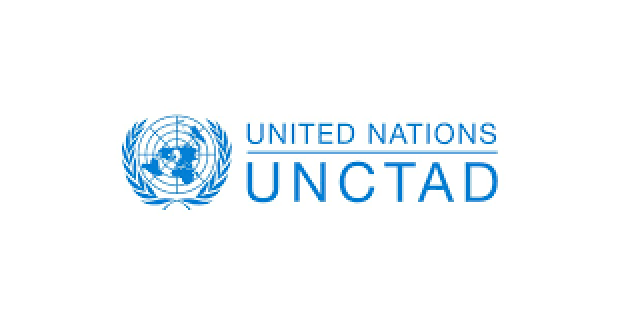The Russian invasion of Ukraine has been the “main contributing factor” to the potentially devastating one percent drop in projected global economic growth in 2022, according to UN Conference on Trade and Development (UNCTAD)
UN development economists, UNCTAD said on Thursday, in the body’s latest global economic update, that the global economic growth will decrease to 2.6 percent from 3.6 percent for 2022.
The UN’s trade and development body downgraded its global economic growth projection by one percent due to the Ukraine war and to changes in macroeconomic policies made by countries in recent months.
It stated that developing countries would need 310 billion dollars to meet their external public debt service requirements in 2022.
In an update to its Trade and Development report published on Thursday, UNCTAD says that while Russia will experience a deep recession in 2022, significant slowdowns in growth are expected in parts of Western Europe and Central, South, and South-East Asia.
The ongoing war in Ukraine is likely to reinforce the monetary tightening trend in advanced countries following similar moves that began in late 2021 in several developing countries due to inflationary pressures, with expenditure cuts also anticipated in upcoming budgets.
UNCTAD is worried that a combination of weakening global demand, insufficient policy coordination at the international level, and elevated debt levels from the pandemic, will generate financial shockwaves that can push some developing countries into a downward spiral of insolvency, recession and arrested development.
“The economic effects of the Ukraine war will compound the ongoing economic slowdown globally and weaken the recovery from the COVID-19 pandemic,” UNCTAD Secretary-General Rebeca Grynspan said.
“Many developing countries have struggled to gain economic traction coming out of the COVID-19 recession and are now facing strong headwinds from the war. Whether this leads to unrest or not, profound social anxiety is already spreading.”
Even without lasting financial market disruptions, developing economies will face severe constraints on growth. During the pandemic, their public and private debt stocks have increased.
And issues that receded from view during the pandemic, including high corporate leverage and rising household debt in middle-income developing countries, will resurface as policy tightens.
The war has put further upward pressure on international prices of energy and primary commodities, stretching household budgets and adding to production costs, while disruptions to trade and the effects of sanctions are likely to have a chilling effect on long-term investment.
Coming just as pandemic-induced disruptions seemed to subside, the geopolitical crisis has dealt a blow to confidence domestically.
“The added pressure of price increases is intensifying calls for a policy response in advanced economies, including on the fiscal front, threatening a sharper than expected slowdown in growth,” the UNCTAD report says.
Soaring food and fuel prices will have an immediate effect on the most vulnerable in developing countries, resulting in hunger and hardship for households who spend the highest share of their income on food.
But the loss of purchasing power and real spending will ultimately be felt by everyone.
“The danger for many of the developing countries that are heavily reliant on food and fuel imports is more profound as higher prices threaten livelihoods, discourage investment and raise the specter of widening trade deficits,” the report says.

















Discussion about this post